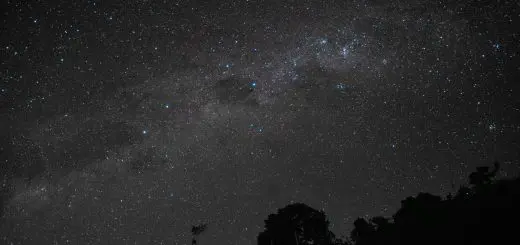How to Find Free Camping Sites in the USA

Looking for more amazing products? Check out our online store and explore our collection here! Happy shopping!
Before diving in, please note: This post is for informational purposes only. If you’d like to know more about how we approach topics, feel free to check out our friendly Disclaimer Page.
Hey there, amazing readers! 
We’re committed to delivering quality posts, and your support (even just sticking around despite the ads) means everything to us. So, bear with us, and thanks for helping us keep the good vibes rolling. Now, on to the fun stuff!
TRANSLATE BUTTON AT THE END OF THE ARTICLE
Introduction: Exploring the Great Outdoors on a Budget
In today’s fast-paced world, where the hustle and bustle of daily life can often feel overwhelming, escaping to the great outdoors can provide a much-needed reprieve.
However, with the rising costs of accommodation and camping fees, finding affordable options for outdoor adventures can be a challenge.
Luckily, the United States is abundant in free camping sites that cater to budget-conscious travelers looking to immerse themselves in nature without breaking the bank.
Utilizing National Forests and Grasslands for Camping
One of the best-kept secrets for free camping in the USA is utilizing the vast network of National Forests and Grasslands.
These public lands offer a plethora of camping opportunities, ranging from designated campgrounds with basic amenities to dispersed camping in remote areas.
To find free camping sites in National Forests, visit the official website of the U.S.
Forest Service and check for specific regulations and guidelines.
Remember to pack out all trash and follow Leave No Trace principles to preserve these pristine natural areas for future generations.
BLM Lands: A Hidden Gem for Free Camping Opportunities
The Bureau of Land Management (BLM) oversees millions of acres of public lands across the United States, providing ample opportunities for free camping.
BLM lands often allow dispersed camping, where visitors can set up camp in undeveloped areas for up to 14 days.
To find free camping sites on BLM lands, utilize online maps and resources provided by the BLM website.
Be sure to obtain any necessary permits and follow all rules and regulations to ensure a safe and enjoyable camping experience.
State Parks Offering Free or Low-Cost Camping Options
While many state parks charge camping fees, some offer free or low-cost camping options for budget-conscious travelers.
Research state park websites or contact park offices to inquire about any available discounts or free camping programs.
Keep in mind that these opportunities may be limited and require advanced reservations, so plan ahead to secure your spot.
State parks provide a unique camping experience, with beautiful natural landscapes and a variety of recreational activities to enjoy during your stay.
Camping for Free on Bureau of Reclamation Lands
The Bureau of Reclamation manages numerous water resource projects throughout the United States, including reservoirs, dams, and irrigation systems.
These lands often feature free camping opportunities near bodies of water, providing a tranquil setting for outdoor enthusiasts.
To find free camping sites on Bureau of Reclamation lands, visit their website or contact local offices for more information.
Remember to practice good stewardship of the land and adhere to any posted regulations to ensure a positive camping experience for yourself and others.
Finding Overnight Parking at Rest Stops and Truck Stops
For road-trippers and travelers looking for a quick overnight stop, rest stops and truck stops can be a convenient and cost-effective option.
Many rest stops across the United States allow overnight parking for weary travelers, providing a safe and well-lit environment for a restful night’s sleep.
Similarly, truck stops often offer designated parking areas for RVs and campers, complete with amenities such as restrooms, showers, and dining options.
Be sure to check for any posted restrictions or time limits before settling in for the night.
Tips for Dispersed Camping on Public Lands
Dispersed camping, also known as boondocking, allows outdoor enthusiasts to camp in undeveloped areas on public lands for free.
When engaging in dispersed camping, it’s essential to follow Leave No Trace principles and practice responsible camping techniques.
Always camp on durable surfaces, pack out all trash, and use a portable camp stove instead of building a fire.
Additionally, familiarize yourself with any specific regulations for the area you plan to camp in, such as fire restrictions or wildlife considerations.
By respecting the land and wildlife, you can enjoy a rewarding camping experience while minimizing your impact on the environment.
Exploring Free Camping Opportunities on Wildlife Refuges
Wildlife refuges are designated areas managed by the U.S.
Fish and Wildlife Service to protect and preserve native wildlife species and their habitats.
Some wildlife refuges offer free camping opportunities for visitors to experience the natural beauty and wildlife diversity of these unique areas.
To find free camping sites on wildlife refuges, visit the official website of the U.S.
Fish and Wildlife Service and check for any available camping programs or permits.
Keep in mind that these areas may have specific regulations regarding camping, so be sure to research and plan accordingly for your visit.
Harvesting the Benefits of Free Camping on WMA Lands
Wildlife Management Areas (WMAs) are public lands managed for the conservation and sustainable use of wildlife resources.
Many WMAs throughout the United States offer free camping opportunities for outdoor enthusiasts to enjoy nature-based activities such as hunting, fishing, and wildlife viewing.
To find free camping sites on WMAs, visit state wildlife agency websites or contact local offices for information on camping regulations and availability.
Remember to practice ethical outdoor behavior and respect wildlife habitats while camping on WMA lands to ensure a positive experience for yourself and others.
Utilizing Apps and Websites to Locate Free Campgrounds
In today’s digital age, there are numerous apps and websites available to help travelers locate free campgrounds and camping sites across the United States.
Popular apps such as Campendium, FreeRoam, and iOverlander provide user-generated reviews and recommendations for free camping spots, along with essential information such as amenities, regulations, and accessibility.
Additionally, websites like Freecampsites.net and Boondockers Welcome offer directories of free camping sites and resources for budget-conscious travelers.
By utilizing these tools, you can easily find and plan your next free camping adventure with confidence.
Respecting the Leave No Trace Principles while Camping
As outdoor enthusiasts, it is our responsibility to practice Leave No Trace principles to minimize our impact on the environment and preserve the natural beauty of public lands.
These principles, including concepts such as disposing of waste properly, minimizing campfire impacts, and respecting wildlife, underpin responsible outdoor ethics for all campers.
By following Leave No Trace guidelines while camping, we can ensure that future generations can continue to enjoy the beauty of the outdoors without detriment to the environment.
Remember, Leave No Trace is not just a set of rules – it’s a way of life for conscientious campers who value the great outdoors.
Conclusion: Embracing the Freedom of Free Camping in the USA
In conclusion, exploring the great outdoors on a budget is not only possible but incredibly rewarding when you take advantage of the many free camping opportunities available in the United States.
From National Forests and Grasslands to BLM lands, state parks, and wildlife refuges, there are countless options for budget-conscious travelers to experience the beauty of nature without spending a fortune.
By utilizing online resources, practicing responsible camping techniques, and respecting the Leave No Trace principles, you can enjoy the freedom of free camping while preserving the natural wonders of public lands for future generations to enjoy.
So pack your gear, hit the road, and embrace the adventure of free camping in the USA – the great outdoors is calling!

The Enlightenment Journey is a remarkable collection of writings authored by a distinguished group of experts in the fields of spirituality, new age, and esoteric knowledge.
This anthology features a diverse assembly of well-experienced authors who bring their profound insights and credible perspectives to the forefront.
Each contributor possesses a wealth of knowledge and wisdom, making them authorities in their respective domains.
Together, they offer readers a transformative journey into the realms of spiritual growth, self-discovery, and esoteric enlightenment.
The Enlightenment Journey is a testament to the collective expertise of these luminaries, providing readers with a rich tapestry of ideas and information to illuminate their spiritual path.
Our Diverse Expertise
While our primary focus is on spirituality and esotericism, we are equally passionate about exploring a wide range of other topics and niches 

To ensure we provide the most accurate and valuable insights, we collaborate with trusted experts in their respective domains 
Our blog originally focused on spirituality and metaphysics, but we’ve since expanded to cover a wide range of niches. Don’t worry—we continue to publish a lot of articles on spirituality! Frequently visit our blog to explore our diverse content and stay tuned for more insightful reads.
Hey there, amazing reader! 
Check out our store here and take a peek at some of our featured products below! Thanks for being awesome!











